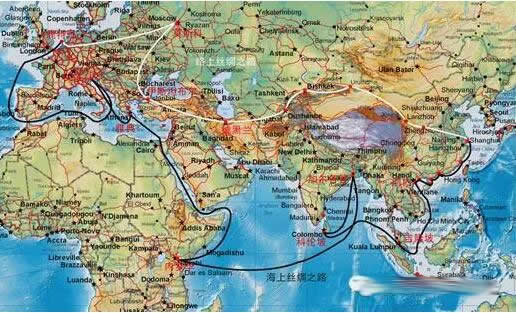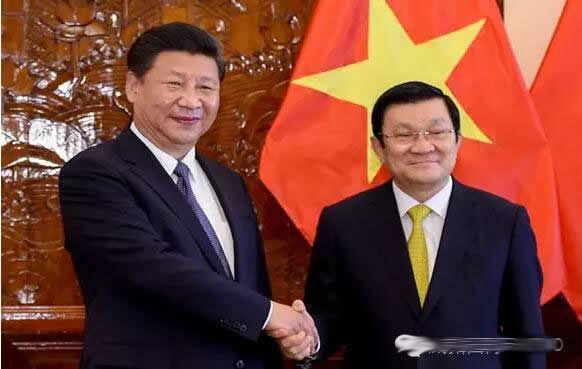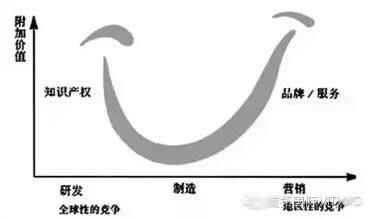“一帶一路”為科技企業(yè)國(guó)際產(chǎn)能合作帶來(lái)新機(jī)遇
“One Belt and One Road" Opening up New Opportunities for the International Industrial capacity Cooperation among Chinese Technology Enterprises”

目前全世界都在關(guān)注中國(guó)政府實(shí)施的“一帶一路”戰(zhàn)略,大家的焦點(diǎn)都停留在中國(guó)高鐵和中國(guó)基礎(chǔ)設(shè)施建設(shè)企業(yè)等實(shí)施的大項(xiàng)目。但我們認(rèn)為,“一帶一路”絕不是基礎(chǔ)設(shè)施和大項(xiàng)目企業(yè)的獨(dú)角戲。
The whole world are now casting their eyes on the "One Belt and One Road" strategy launched by the Chinese Government, focusing mainly on the major projects carried out by the Chinese high-speed railway operator and infrastructure constructors. Still, we firmly believe that "One Belt and One Road" is by no means the "one-man show" of these infrastructure constructors and major project operators.
“一帶一路”沿線(xiàn)大多是發(fā)展中國(guó)家,資源豐富,但其科技水平普遍低于中國(guó)。像二三十年前中國(guó)一樣,這些國(guó)家都需要外國(guó)的技術(shù)與資金投資,提高其資源的價(jià)值,為此,“一帶一路”國(guó)家經(jīng)濟(jì)轉(zhuǎn)型發(fā)展為中國(guó)科技企業(yè)帶來(lái)巨大的新機(jī)遇。
Along the "One Belt and One Road" there are many resource-abundant developing countries with underdeveloped S&T level. Like China in its past 20-30 years, these countries are in dire need of foreign technologies and investment. "One Belt and One Road" initiative, which is aimed to achieve the transformation of national economy, has opened up new opportunities for Chinese high-tech enterprises.

越南國(guó)家領(lǐng)導(dǎo)人在2015年11月會(huì)見(jiàn)來(lái)訪的中國(guó)國(guó)家主任習(xí)近平時(shí)表示,越南希望參與中國(guó)提出的“一帶一路”的倡議,歡迎中國(guó)企業(yè)參與越南的基礎(chǔ)設(shè)施建設(shè),但同時(shí),越南也誠(chéng)摯希望中國(guó)科技企業(yè)投資越南;哈薩克斯坦國(guó)正在進(jìn)行國(guó)企股份私有化,希望出售部分國(guó)有企業(yè)股份,引進(jìn)外國(guó)的先進(jìn)技術(shù);馬來(lái)西亞與泰國(guó)駐華投資促進(jìn)官員均表示,中國(guó)許多建筑企業(yè)早已入駐兩國(guó),兩國(guó)目前希望大力引進(jìn)中國(guó)科技企業(yè)投資發(fā)展;喀麥隆使館外交官表示,除了希望中國(guó)企業(yè)幫助該國(guó)建設(shè)大樓道路橋梁外,他們更需要中國(guó)適用技術(shù)企業(yè)投資,改善普通群眾的生活水平,“讓他們的盤(pán)子里能多上幾塊肉”。
Chinese President Xi Jinping paid a state visit to Vietnam in November 2015. During the meeting, Vietnamese leader expressed the desire of joining the "One Belt and One Road" initiative and extended his welcome to all Chinese enterprises interested in the infrastructure construction of Vietnam. Meanwhile, Chinese high-tech enterprises are also welcome to invest in Vietnam. Kazakhstan is currently undergoing the privatization of state-owned enterprises by selling part of their equity stocks and introducing advanced foreign technologies. Investment promotion officials of both Malaysia and Thailand all mentioned that a number of building firms have settled in their countries and both countries expect to introduce investment from Chinese high-tech enterprises. Diplomatist from Cameroonian Embassy in China mentioned that they need Chinese enterprises to help Cameroon construct the buildings, roads and bridges; moreover, they also need Chinese high-tech investors to help improve the living standards of the general public and “Give them some meat in their plates”.

主要能源國(guó)家也希望引進(jìn)外國(guó)的技術(shù)投資,減少本國(guó)經(jīng)濟(jì)對(duì)能源出口的依賴(lài)。最近,沙特政府制定了“2030愿景”改革計(jì)劃,希望戒除石油癮,降低石油在國(guó)家經(jīng)濟(jì)收入中的比率至50%以下。中美洲能源大國(guó)特立尼達(dá)與多巴哥政府計(jì)劃,希望發(fā)展ICT、現(xiàn)代設(shè)施農(nóng)業(yè)、水產(chǎn)捕撈與養(yǎng)殖、清潔技術(shù)、能源下游產(chǎn)業(yè)、創(chuàng)業(yè)產(chǎn)業(yè)和輕制造業(yè)等。而剛剛解除了國(guó)際經(jīng)濟(jì)制裁的伊朗也商機(jī)無(wú)限,該國(guó)污染嚴(yán)重的首都德黑蘭市政府接下來(lái)的五年內(nèi)投資約123億美元,補(bǔ)貼市民購(gòu)買(mǎi)電動(dòng)機(jī)車(chē)以替換目前的四十萬(wàn)輛化石能源機(jī)動(dòng)車(chē);波斯灣沿岸地區(qū)嚴(yán)重缺少淡水,他們希望引進(jìn)中國(guó)的海水淡化技術(shù)投資,此外,伊朗邊遠(yuǎn)地區(qū)極其需要分布式太陽(yáng)能和地能空調(diào)系統(tǒng)。
Major energy-exporting countries also expect to introduce investment from foreign high-tech enterprises in order to reduce the dependence of economy on energy export. To this end, the Government of Saudi Arabia has rolled out the "Vision 2030" reform plan in order to reduce the proportion of petroleum in national revenue to less than 50%. The Government of Trinidad and Tobago (a major energy exporter in Central America) also announced its plan to develop ICT, modern facility agriculture, fishing & aquaculture, clean technologies, downstream energy industries, creative industry and light manufacturing industry. With the recent relief from economic sanctions, Iran is also full of abundant business opportunities. Suffering from severe pollution, Teheran Municipality will invest 12.3 billion US dollars in the next five years to subsidize the purchase of electric cars by residents to replac the existing 400,000 fossil-fuel cars. Given the severe shortage of fresh water in the coastal areas of Persian Gulf, Iran also expects to introduce Chinese investment on saline water conversion. Furthermore, outlying areas of Iran are in dire need of distributed solar energy and geothermal energy driven air-conditioning system.

然而,面對(duì)世界各國(guó)巨大的商機(jī),中國(guó)科技企業(yè)卻難以應(yīng)對(duì)。由于大多數(shù)中國(guó)科技企業(yè)規(guī)模不大,應(yīng)對(duì)海外投資風(fēng)險(xiǎn)能力弱,他們目前還主要通過(guò)外貿(mào)出口的傳統(tǒng)方式出口產(chǎn)品,不敢貿(mào)然邁出國(guó)內(nèi),在海外市場(chǎng)設(shè)立公司,直接面對(duì)外國(guó)終端客戶(hù)及渠道出口產(chǎn)品。此外,由于世界經(jīng)濟(jì)不景氣,海外客戶(hù)缺乏資金,希望中國(guó)企業(yè)提供銷(xiāo)售融資,但中國(guó)中小型科技型卻缺少融資渠道和海外融資經(jīng)驗(yàn)。有些企業(yè)直接面對(duì)海外客戶(hù)的銷(xiāo)售經(jīng)理了解客戶(hù)的困難,但由于本公司領(lǐng)導(dǎo)缺乏對(duì)國(guó)際市場(chǎng)現(xiàn)實(shí)情況的認(rèn)識(shí),并沒(méi)有制定新的海外市場(chǎng)戰(zhàn)略,因此,熟悉海外客戶(hù)需求情況的業(yè)務(wù)經(jīng)理由于不能滿(mǎn)足客戶(hù)的需求而干著急。總體來(lái)說(shuō),企業(yè)缺少在“一帶一路”國(guó)家的經(jīng)營(yíng)經(jīng)驗(yàn)是最主要的問(wèn)題。
Still, it's rather difficult for Chinese high-tech enterprises to seize these enormous business opportunities across the world. Most of Chinese high-tech enterprises are small in size and weak in the risk resistance capacity necessary for outbound investment. Exporting products mainly through the traditional means of foreign trade, they dare not establish businesses on the foreign markets and face foreign end-users directly. In addition, due to global economic recession, foreign clients are lack of cash and expect Chinese enterprises to provide sales financing, and yet Chinese high-tech SMBs have no such financing channels and no experience with overseas financing. Although the sales manager of some enterprises are fully aware of the difficulties faced by foreign clients, due to the inadequate understanding of international market situations by company executives, no new strategy for the overseas markets could be developed, leaving the sales manager helplessly anxious but unable to do anything. Generally speaking, the lack of operating experiences in counties along "One Belt and One Road" among company executives and management has turned out to be the foremost problem. VITWO has turned its eyes on the globalization of Chinese enterprises ever since 2007. Below are our advices for both the government and enterprises on how to improve the globalization capacity of enterprises.

威拓國(guó)際從2007年就開(kāi)始關(guān)注中國(guó)企業(yè)的國(guó)際化,對(duì)此,我們向包括政府和企業(yè)提出以下提高企業(yè)國(guó)際化能力的建議:
1、高度企業(yè)國(guó)際化人材的培訓(xùn)工作,從企業(yè)國(guó)際化業(yè)務(wù)需求角度來(lái)設(shè)計(jì)學(xué)以致用的實(shí)用型培訓(xùn)課程。
2、組織企業(yè)抱團(tuán)出海,充分依靠投資目標(biāo)國(guó)當(dāng)?shù)貙?zhuān)業(yè)人材,在投資目標(biāo)國(guó)建立國(guó)際化孵化器,幫助中國(guó)企業(yè)降低投資風(fēng)險(xiǎn)與成本,迅速拓展當(dāng)?shù)厥袌?chǎng)。
3、各級(jí)政府商務(wù)部門(mén)可適時(shí)調(diào)整各地“中小型企業(yè)開(kāi)拓國(guó)際市場(chǎng)基金”的使用范圍,重點(diǎn)支持企業(yè)投資開(kāi)拓“一帶一路”國(guó)家市場(chǎng)。
4、企業(yè)應(yīng)把握趨勢(shì),變外貿(mào)出口為投資出口,充分結(jié)合中國(guó)企業(yè)生產(chǎn)制造技術(shù)、效率方面的優(yōu)勢(shì)與投資目標(biāo)國(guó)合作伙伴對(duì)客戶(hù)的了解與市場(chǎng)分銷(xiāo)資源方面的優(yōu)勢(shì),積極開(kāi)展產(chǎn)能合作,創(chuàng)造與目標(biāo)國(guó)合作伙伴長(zhǎng)期共贏新模式。
5、企業(yè)應(yīng)重視專(zhuān)業(yè)服務(wù)機(jī)構(gòu)的價(jià)值、依靠他們把控海外投資風(fēng)險(xiǎn),同時(shí)應(yīng)積極與投資目標(biāo)國(guó)的金融機(jī)構(gòu)合作,為客戶(hù)提供多樣化的銷(xiāo)售融資服務(wù)手段;
6、國(guó)際化的本質(zhì)就是本地化,商業(yè)交易就是要為客戶(hù)提供其所需的產(chǎn)品和服務(wù),為此,海外投資企業(yè)在制定海外市場(chǎng)戰(zhàn)略時(shí)就必須高度經(jīng)營(yíng)本地化,尊重各國(guó)的法律及商務(wù)環(huán)境特點(diǎn)(潛規(guī)則),重視本地人材的作用。
1) To nurture internationalized talents and design practical training courses based on the needs of international operations;
2) To band together enterprises intending to go abroad, make full use of professional talents both in China and destination countries, establish internationalization incubators in the destination countries, and help Chinese enterprises reduce investment risks and costs and quickly expand into local markets;
3) All levels of commerce authorities may adjust the applicable scope of local foundation for supporting SMBs in expanding into international markets, and give priority support to companies investing in countries along "One Belt and One Road";
4) Enterprises are expected to shift from foreign trade export to investment export and, by leveraging the advantages of Chinese enterprises in manufacturing technologies and efficiency and of foreign partners in the understanding of customers and market channels, to proactively carry out win-win industrial capacity cooperation with partners in the destination countries;
5) Enterprises must focus on the value of professional service agencies and rely on them to control the risks with overseas investment; meanwhile, enterprises are also expected to actively cooperate with financial institutions in destination countries in order to provide diversified sales financing services for clients;
6) Globalization is all about localization, and commercial trade is to provide customers with the products and services they need. Therefore, during the development of operational strategies for overseas markets, outbound investors must highly respect the laws and business environment (latent rules) of destination countries, as well as the important role of native talents.
